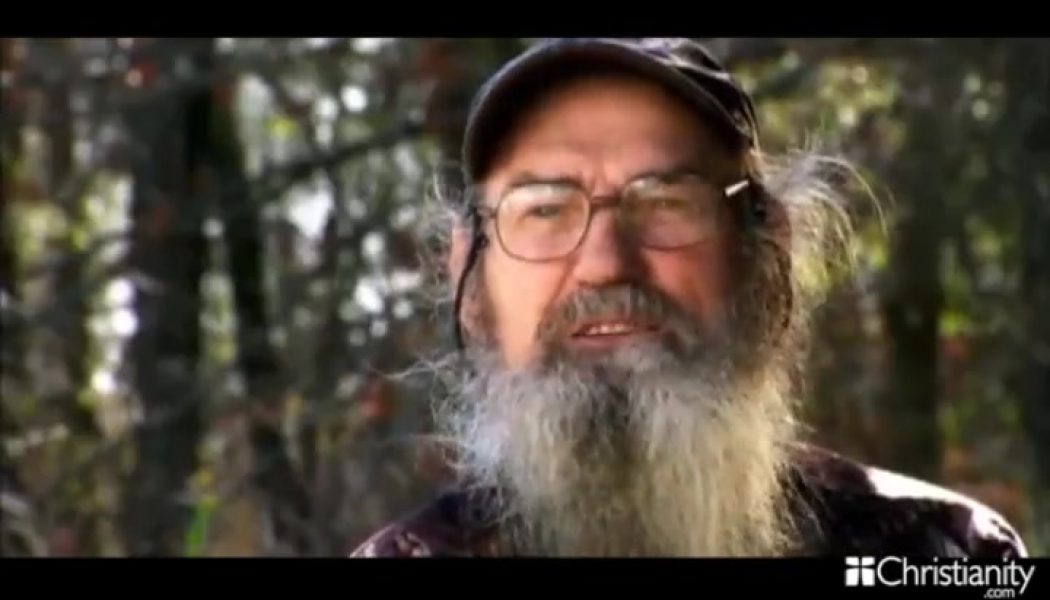salvation
I Weep for Miley
Picking up a sub sandwich today, I saw a news report on CNN about Miley Cyrus’ performance at this year’s MTV Video Music Awards. I was shocked, then sickened, then saddened. For the rest of the day, I wondered: What kind of people are we? What kind of culture have we created? What do we want our children to be? No more wondering. Tonight, I weep. I weep for the little girl who gave us Hannah Montana and became a role model to millions of little girls across America. I weep for the lostness of a girl who doesn’t see herself stumbling around in the dark. I weep for the news channels that profit from their all-day coverage of a young woman spiraling out of control. I weep for the American Idol culture that promises glitter and gold to children, then chews them up and spits them out. I weep f...
God and Sexuality
The Bible begins with God, the good Creator of all things and the One who rules the universe. His creative handiwork—everything from light to land to living creatures—is called “good.”[1] But the crown of God’s good creation is humanity. We are made in the very image of God. And God declared: “behold it was very good”.[2] As the pinnacle of God’s creation, human beings reveal God more wonderfully than any other creature as we were created like God,[3] by God,[4] for God,[5] and to be with God.[6] In Genesis 1:26, God says “Let Us make man in Our image.” The fact that our Creator gave us a remarkable title—“the image of God”—speaks of the inherent dignity of all human beings. The expression “image of God” designated human beings as representatives of the supreme King of the universe. Immedi...
Seeing God in Your Work
The difference between barbarism and culture is, simply, work. —Lester DeKoster If you’re like me, you’ve often heard the saying that “work is a curse” as result of the fall in the Garden of Eden. That statement couldn’t be further from the truth. Our Original Purpose In the beginning, prior to sin, God assigned Adam and Eve important work. In Genesis 2 we read about man’s first day of work: “The Lord God took the man and put him in the garden of Eden to work it and keep it” (Gen. 2:15). We were created to be stewards of God’s creation through our work. The opening two chapters of Genesis provide a foundation for how God sees work, culture, and our responsibility. This same perspective extends throughout the Scriptures. Work is not a curse, but a gift from God giv...
Growing Your Appetite for the Lord’s Supper
Many Christians have an uneasy relationship with the Lord’s Supper. Though this gospel feast has been central to Christian worship since the beginning of the church, many believers find the Lord’s Supper either confusing, intimidating, or just plain boring. I was raised in a tradition that observed the Lord’s Supper only twice a year, complete with unleavened bread and alcoholic wine. These biannual services were usually very solemn, and though they prompted serious self-examination and genuine gratitude for the work of Christ, they also made me feel uncomfortable. It was rare for me to approach the Table with anything like celebratory joy or the expectation of receiving practical help for my Christian life. Even in my early days as a pastor, I approached Communion Sundays with a certain d...
Preach to Yourself
Most Christians seem to still agree that preaching is important. We download podcasts and attend conferences that center around preaching, and it remains a primary reason many choose a new church. However, one of the most neglected forms of preaching is also one of the most powerful–preaching to ourselves. By “preaching to ourselves” I mean the discipline of intense Biblical meditation; reading, dwelling on, and applying the truths of Scripture to our own lives that leads to a deepening love of God, hatred of sin, and faith in Jesus Christ. The idea of preaching to ourselves is popular today, though my experience suggests that it is under-practiced. Perhaps the reason for this is that we aren’t clear what it is or how it should take form. But I believe t...
What To Do When Tempted
How do you handle temptation? I’m not talking about the fleeting, seemingly benign thought of sin that may hold initial allure, but is easily dismissed. (Though we should be on guard against these kinds of thoughts, too). No, I’m talking about that moment when you’ve savored the juicy morsel and like the taste. You clamp down your jaws and suddenly feel the sharp piercing desire for more and a forceful tug towards deliberate, willful sin. You realize that you’ve swallowed a hook and the angler is reeling you in. Your better judgment, and God’s Word, and the Holy Spirit are whispering “No.” But your appetites and emotions are screaming, “Yes!” I have in mind those times when you are like Peter in the courtyard, your heart frenzied by fear, about to commit an act of cowardice and treachery. ...
How to Endure in the Race of Faith
I remember taking eye exams as a child and being quite proud that I could stand back twenty feet from the sign with all the random letters and read each one. I’ve had 20/20 vision for as long as I can remember. I’ve never worn glasses—never needed to. Lately my perfect eye sight isn’t so perfect. The revelation that my eye sight isn’t up to par came one night as I was attempting to drive in the rain. It wasn’t a downpour, it was a normal rainfall, yet I found myself squinting to see the white lines and everything looked like a bright reflection. Reflection of what, I don’t know, but I knew I couldn’t see. Then later I realized I couldn’t read signs that were far away. I finally accepted that I no longer have 20/20 vision and needed to go to see an eye doctor. As I’ve continued to wal...
Freedom of Religion
There’s a growing undercurrent of political word-smiting regarding freedom to be a Jesus follower in the culture today. It’s a movement to narrow and marginalize people of faith who have opinions, want to be heard and who want to participate in the debate that is at the intersection of culture, politics and faith. Those attuned to the habit of political groups adopting talking points to help reframe our understanding of particular issues will notice that politicos are actively affirming our “right to worship” freely rather than the “freedom of religion.” The biographer/apologist/thinker Eric Metaxas addressed this very topic here. The “right to worship” argument essentially seeks to give people the freedom to preach, commune and practice in whatever way they choose, so long as it doesn’t c...
Is God Good When Life Isn’t?
Is God good when the outcome is not? During the famine as well as the feast? At some point we all stand at this intersection. The definitive answer comes in the person of Jesus Christ. He is the only picture of God ever taken. Do you want to know heaven’s clearest answer to the question of suffering? Look at Jesus. He pressed his fingers into the sore of the leper. He felt the tears of the sinful woman who wept. He inclined his ear to the cry of the hungry. He wept at the death of a friend. He stopped his work to tend to the needs of a grieving mother. He doesn’t recoil, run, or retreat at the sight of pain. Just the opposite. He didn’t walk the earth in an insulated bubble or preach from an isolated, germfree, pain-free island. He took his own medicine. He played by his own rules. Trivial...
What Is a Worldview?
[Editor’s Note: The following is adapted from the introduction of James Sire’s book The Universe Next Door, Fifth Edition. Used by permission of InterVarsity Press PO Box 1400 Downers Grove, IL 60515. http://www.ivpress.com/.] Few people have anything approaching an articulate philosophy—at least as epitomized by the great philosophers. Even fewer, I suspect, have a carefully constructed theology. But everyone has a worldview. Whenever any of us thinks about anything—from a casual thought (Where did I leave my watch?) to a profound question (Who am I?)—we are operating within such a framework. In fact, it is only the assumption of a worldview—however basic or simple—that allows us to think at all. What, then, is this thing called a worldview that is so important...
Duck Dynasty’s Uncle Si
In “Si-Cology 1,” Duck Dynasty’s Uncle Si gives us a laugh out loud trip through his life seasoned with spiritual lessons along the way. While keeping his trademark wit close at hand, Si highlights the importance of trusting Christ through good times and bad. Originally published September 10, 2013.



















